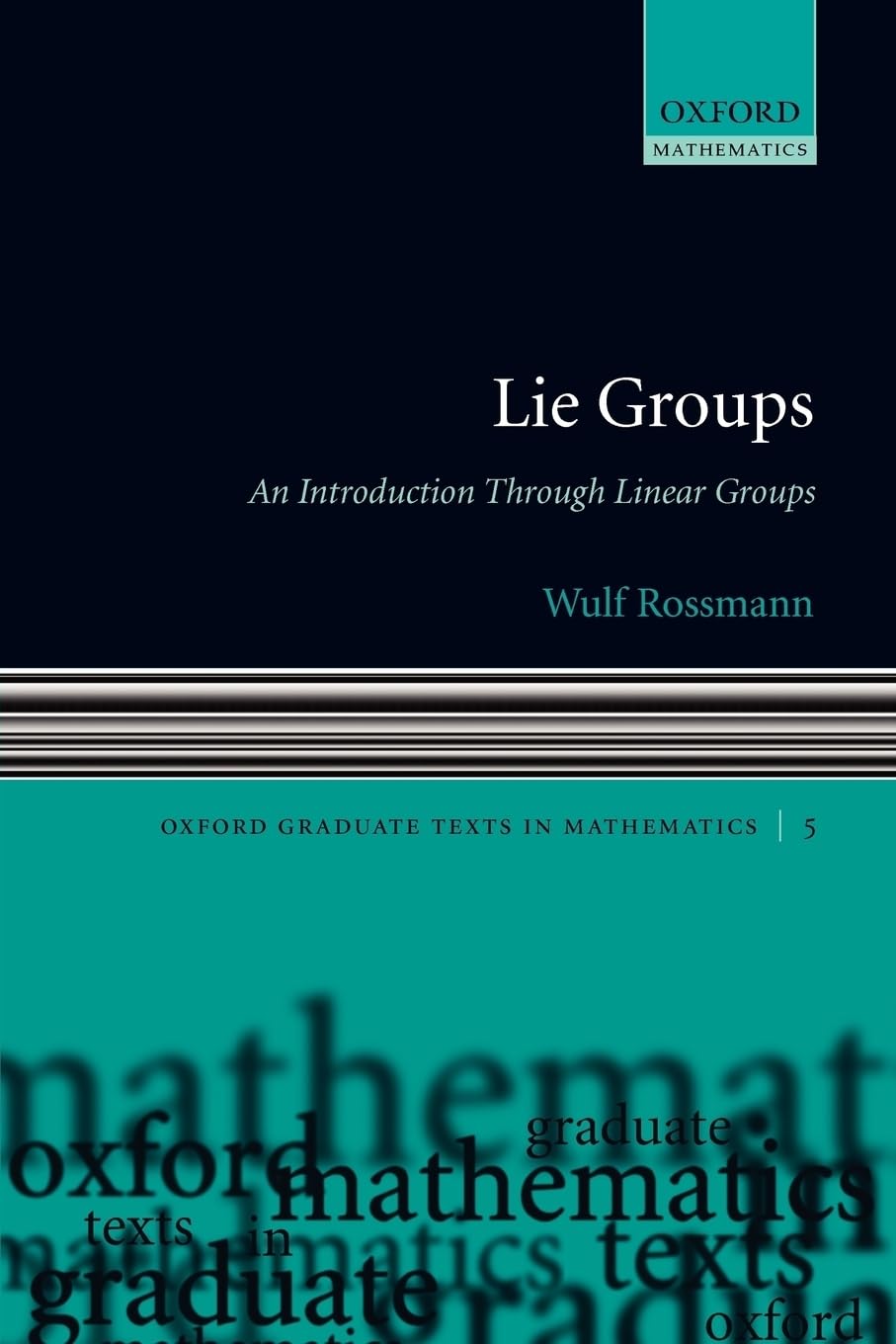Lie Groups: An Introduction through Linear Groups (Oxford Graduate Texts in Mathematics)
Lie Groups: An Introduction through Linear Groups (Oxford Graduate Texts in Mathematics) is backordered and will ship as soon as it is back in stock.
Couldn't load pickup availability
Genuine Products Guarantee
Genuine Products Guarantee
We guarantee 100% genuine products, and if proven otherwise, we will compensate you with 10 times the product's cost.
Delivery and Shipping
Delivery and Shipping
Products are generally ready for dispatch within 1 day and typically reach you in 3 to 5 days.
Book Details
-
Publisher: OUP Oxford
-
Author: Wulf Rossmann
-
Language: English
-
ISBN: 9780199202515
-
Pages: 265
-
Cover: Paperback
-
Dimensions: 9.2 x 6.1 x 0.6 inches
-
About The Book
Lie Groups: An Introduction Through Linear Groups by Wulf Rossmann offers a well-structured and accessible entry point into the rich world of Lie groups and their representations, targeting advanced undergraduate and beginning graduate students. Starting from the basics of undergraduate mathematics, the book gradually builds a comprehensive framework to understand the deep connections between Lie groups and Lie algebras, both from local and global perspectives.
The text provides a detailed exploration of the classical groups, first using straightforward matrix methods and then delving into more advanced tools such as Cartan subgroups, roots, weights, and reflections, which are key to understanding the structure of semisimple groups. It includes practical computations of fundamental groups of classical Lie groups, illustrating their topological complexity.
Manifold theory is introduced only where necessary, particularly in the context of homogeneous spaces, with concise yet effective explanations of differential and integral calculus on manifolds. Special emphasis is placed on integration theory as it applies to Lie groups and homogeneous spaces.
The book also develops the representation theory of Lie groups from the ground up, beginning with Schur’s Lemma, leading into the Peter–Weyl Theorem, Weyl’s Character Formula, and the Borel–Weil Theorem, all within the setting of linear groups.
Ideal for students and researchers in mathematics and theoretical physics, this volume combines pedagogical clarity with rigorous mathematics, making it a valuable resource for mastering the foundational elements of Lie theory.





